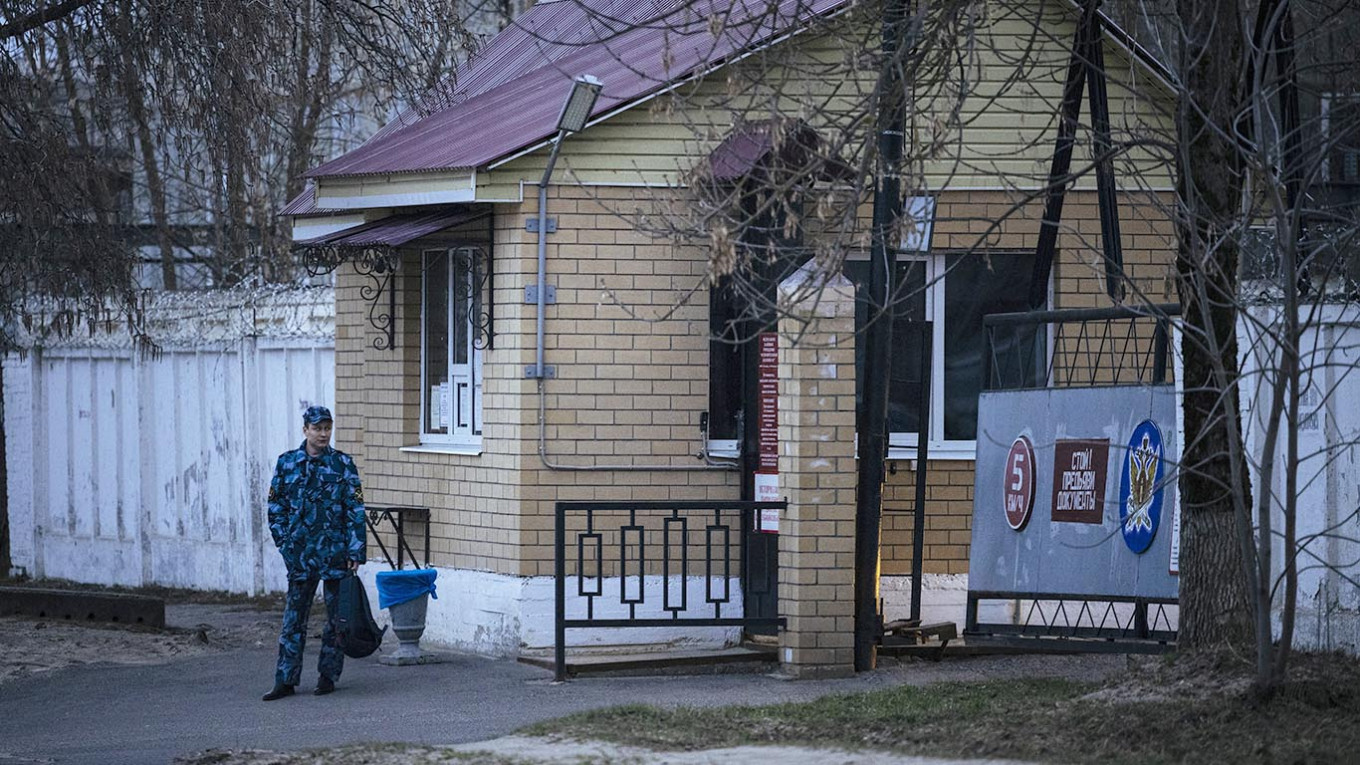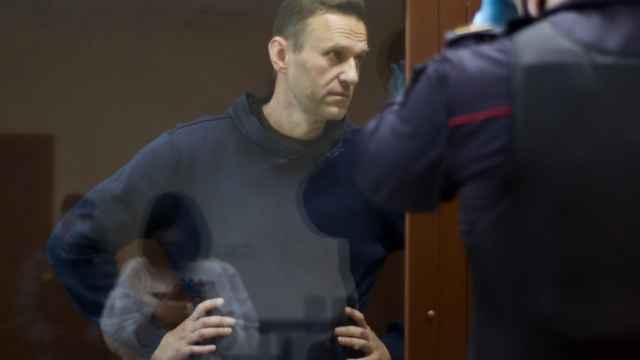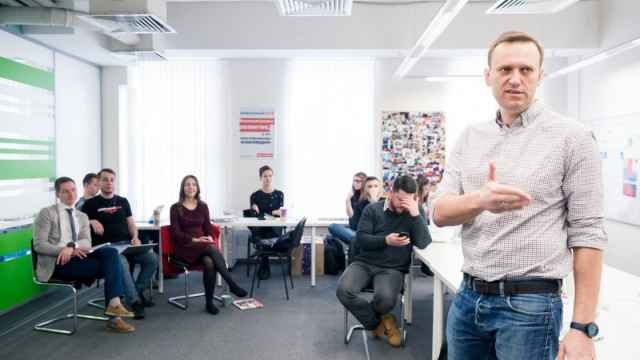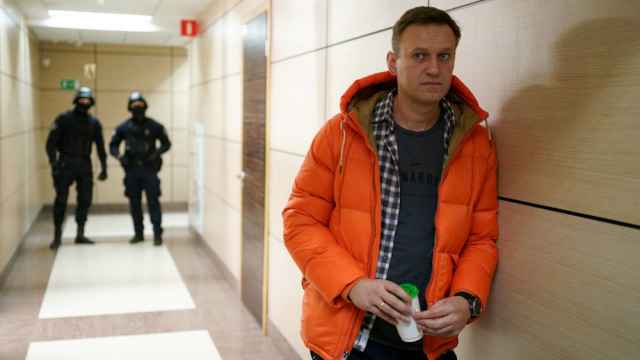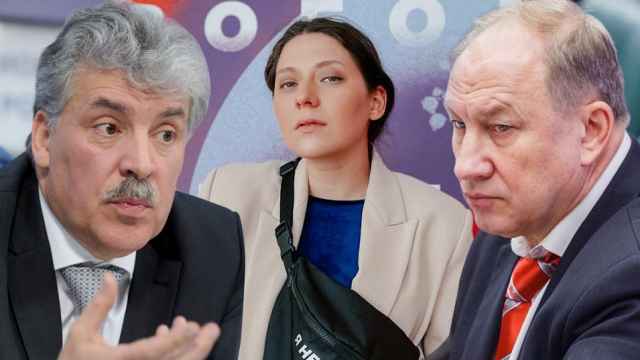Alexei Navalny's doctors were again denied access Tuesday to the jailed Kremlin critic, as lawyers for the hunger-striking opposition figure said he was "very weak" and demanded he be transferred to a civilian hospital.
A team of medics has been trying to see the 44-year-old since early this month, after President Vladimir Putin's most outspoken opponent began refusing food on March 31 to demand proper medical treatment for a litany of ailments.
Nearly three weeks into the hunger strike, doctors over the weekend warned that Navalny's health was failing so rapidly he could die at "any minute", as the United States threatened Russia with "consequences" in the event of his death.
Russia's prison service, which has repeatedly prevented Navalny's doctors from visiting him, said Monday that he had been moved from his penal colony in the Vladimir region some 100 kilometres (60 miles) east of Moscow to a medical facility at another colony in the same region.
Navalny's lawyer Olga Mikhailova told reporters outside the prison hospital Tuesday afternoon that he had become "very weak" and that "it's hard for him to speak and sit up".
That assessment came after a team of physicians including Navalny's personal doctor Anastasia Vasilyeva traveled Tuesday morning to the new colony and were barred from seeing him.
Mikhailova and another lawyer who were, however, given access, said Navalny had agreed to a glucose drip and was given one on Sunday, but noted that nurses had failed multiple times to find his vein, citing that as evidence that the prison infirmary was not up to the task.
"Medical care in this particular case is not being given," Mikhailova said.
"He must be transferred to a civilian hospital in Moscow so that he can receive all the necessary assistance to prevent him from dying here."
'Allow a doctor to see my dad'
Concern is growing in the West over Navalny's condition.
German Chancellor Angela Merkel on Tuesday said Berlin is "working to ensure that he receives proper medical care".
"We are very worried and are trying to use our influence," she said.
His family members have also spoken up in recent days.
"Allow a doctor to see my dad," Navalny's daughter Dasha Navalnaya tweeted Sunday.
In an Instagram post on Tuesday, the critic's mother Lyudmila Navalnaya called on authorities to "admit independent, civilian doctors to Alexei".
The Kremlin however has dismissed the foreign outcry, saying that Russian convicts do not concern Western countries. It has also said that Navalny does not deserve any special treatment.
Navalny is serving a two-and-a-half-year sentence for violating parole terms on old fraud charges he says are politically motivated.
He was arrested in January on his return to Russia from Germany, where he had spent months recovering from a poisoning attack with the Novichok nerve agent. He blames the attack on Putin, a claim the Kremlin has repeatedly denied.
The European Union and the United States have imposed sanctions on Russia over the poisoning, and on Monday threatened Moscow with further penalties in the event of Navalny's death.
Growing pressure
Navalny launched his hunger strike demanding proper medical treatment over severe back pain and numbness in his limbs.
His team said over the weekend a blood test had shown high potassium levels and elevated creatinine, indicating Navalny could be suffering from impaired kidney function and risked cardiac arrest.
Russia's prison service insisted his condition was "satisfactory", despite moving him to the medical facility, and said he was taking vitamin supplements as part of his treatment.
Navalny's team has called on supporters to take to the streets on Wednesday — when Putin is due to deliver his annual state of the nation address — to protest how he is being treated.
On Tuesday it said rallies would take place in over 100 cities nationwide, as officials in Moscow said they had denied the team's request for holding a protest in the capital due to the coronavirus pandemic.
His team added that police were searching their offices in the Siberian city of Krasnoyarsk, the home of their coordinator in the southern city of Belgorad and had detained another coordinator in the Urals city of Kurgan.
It added that a third in the southern city of Volgograd was ordered held behind bars for 25 days.
"They have begun jailing our coordinators for a rally that has not yet happened," the team tweeted.
A Message from The Moscow Times:
Dear readers,
We are facing unprecedented challenges. Russia's Prosecutor General's Office has designated The Moscow Times as an "undesirable" organization, criminalizing our work and putting our staff at risk of prosecution. This follows our earlier unjust labeling as a "foreign agent."
These actions are direct attempts to silence independent journalism in Russia. The authorities claim our work "discredits the decisions of the Russian leadership." We see things differently: we strive to provide accurate, unbiased reporting on Russia.
We, the journalists of The Moscow Times, refuse to be silenced. But to continue our work, we need your help.
Your support, no matter how small, makes a world of difference. If you can, please support us monthly starting from just $2. It's quick to set up, and every contribution makes a significant impact.
By supporting The Moscow Times, you're defending open, independent journalism in the face of repression. Thank you for standing with us.
Remind me later.


